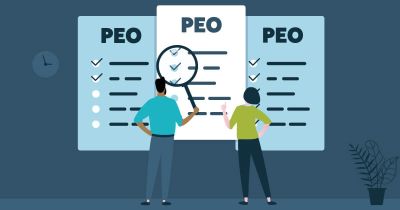Fort Myers, Florida PEO Personal Employer Organization

What Is a PEO and What Does It Stand For?
Businesses looking for HR help can outsource certain HR administrative tasks like payroll, benefits, workers' compensation, and employee training to a PEO to help save time and money. You can also gain guidance to help maintain your compliance with federal and state employment laws and other specialized and support for time-consuming tasks such as 401(k) plan administration and health, dental and life insurance so you and your management team can stay focused on the business and your customers.
Are There Different Types of PEOs?
PEOs do not supply labor to worksites or other staffing services, nor do they take over the hiring and management of your employees. There is only one type of PEO: the organization provides HR and employee relations support services for a business's existing workforce. In short, PEOs offer outsourced HR services.
How Does a PEO Work?
The client company signs a service agreement with the PEO, which generally includes the following:
The PEO performs certain HR administrative services while the client remains the worksite employer. The PEO can provide support to a client's in-house HR staff and teams.
The client company is responsible for hiring and managing their employees and handling non-employee-related business operations (e.g., sales, marketing, customer service).
The PEO is responsible for processing employee wages, benefits, and withholdings and for remitting and reporting taxes to any applicable state and federal authorities for the duration of the service agreement.
The PEO helps the client company maintain compliance by keeping track of complex employment laws and offering risk management strategies. This may include payroll tax laws and reporting requirements, workers' compensation, and employee relations issues.
An HR professional may work with the client company to help the organization proactively address critical areas of risk, helping ease concerns around employee relations and accommodations, terminations, and other employee-workplace issues.
Specific tasks, such as developing an employee handbook, may be shared between the client company and the PEO as outlined in the service agreement.
PEOs can assist with many HR functions, allowing businesses and internal HR teams to focus on company culture, client satisfaction, and employee engagement.
The client company obtains access to the PEO's pool of benefits options and support for administering them.
What Doesn't a PEO Do?
In contrast to leasing or staffing companies, which typically supply new workers on a temporary or project-specific basis, a PEO takes a different approach. A PEO doesn't engage in such practices, where temporary staffing services generally recruit and hire employees for short-term assignments like during employee absences, temporary skill shortages, or seasonal workloads. PEOs do not supply labor to worksites. PEOs provide services and benefits to both the worksite employer and the client’s employees.
PEOs, also known as a professional employment or employer organizations, are sometimes mistaken for other outsourcing service organizations that include similar or related services, such as:
Staff leasing company
Employee leasing company
Managed payroll
Human resources outsourcing organization (HRO)
Administrative services organization (ASO)
PEOs are not responsible for controlling your business or your employees; they provide access to HR advice and guidance to lean on when you need assistance. PEOs will also not replace your internal HR staff if you already have resources in place. A PEO can provide specialized and supplementary HR guidance from a team of subject matter experts for regulatory compliance, safety, benefits, risk management, and other HR and employee-related topics.
